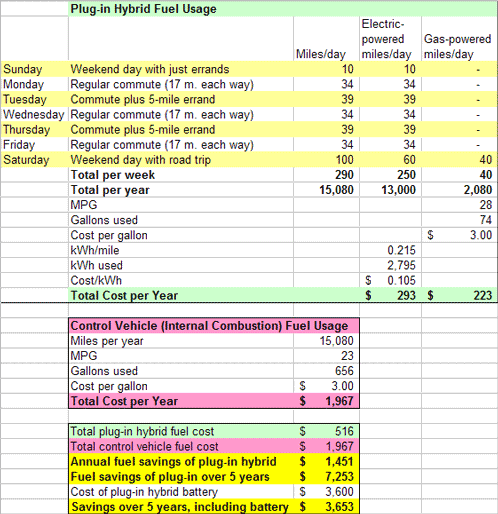Okay, very clever, but I think there's a much simpler solution: marketing. Right now the average driver probably thinks, "well, I'll save a few bucks here and there with a plug-in, but it's going to cost me so much more to get the car..." And no one's telling him "the battery will save you $3,700 in 5 years!" Don't believe me? Let's do the math.
Let's look at a typical driver's fuel usage on a plug-in and a regular internal combustion motor. On Sunday, he just does some around-town driving, adding up to 10 miles. Three days of the week he just goes back and forth to work (34 miles). Two days of the week he adds five miles to his commute to run some errands (39 miles). On the 7th day he heads out for a 100 mile road-trip. Over a year this adds up to 15,000 miles. But as you can see in the graph below, if he plugs in every night, the first 60 miles of each day are electric, with gas kicking in only on his long road trips each Saturday. I used $3/gallon gas, and I figured that the gas he does use is at a higher MPG, because it's kicking in on the freeway on those long road trips. (Click to enlarge the image).

It's pretty easy to see that this average commuter will save almost $1500 a year! Even paying for an expensive $3,600 battery, he saves $3,653 over five years. And if the price of gas jumps fifty cents, he saves over $5,000 over five years.
Now isn't that way more compelling to the consumer than fretting about how expensive the battery is?


No comments:
Post a Comment